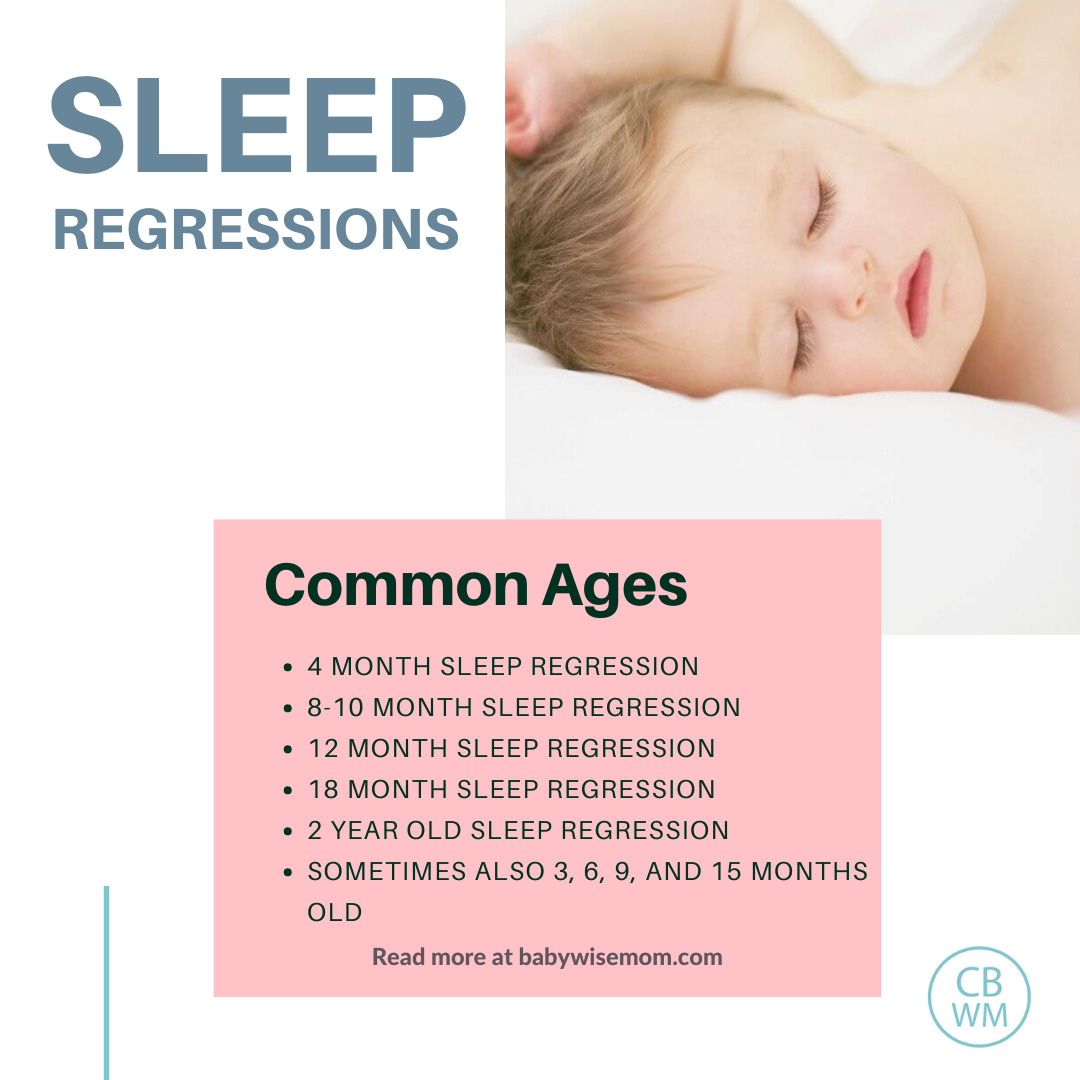Baby Sleep Regression Ages Causes And Everything Else Baby Sleep Baby Sleep Regression

Sleep Regressions Causes Ages And What To Do Causes of a sleep regression may include teething, reaching new milestones, a growth spurt, traveling, illness, or a change in routine. signs of a sleep regression include trouble falling asleep, more frequent night waking, resisting naps, and increased fussiness. sleep regressions often happen when your child is between 3 and 4 months, 6. Sleep regression ages vary from child to child, and some kids may never experience any notable sleep disruptions, says brown. generally, though, these sleep setbacks occur around times when children are due to hit developmental milestones. the typical infant sleep regression ages are: 4 months.

Sleep Regressions Causes Ages And What To Do Baby Sleep Regression Toddler Sleep Unfortunately, sleep regressions don’t stop when your baby turns one. toddlers have sleep regressions, too. 12 month regression. the 12 month sleep regression is really the same as the 11 month regression. if your toddler starts this one in the 12th month, it’s possible they will actually transition to just one nap early. A baby’s sleep architecture significantly changes around 3 months. this biological change can lead to a change in sleep patterns, which is commonly known as “the 4 month regression” but can impact sleep earlier, at 3 months. around 3 4 months old, an infant’s sleep matures. suddenly they’re sleeping in stages and cycles, similar to. You change your infant into pajamas. you give them a short bath, a little massage, sing a song, and then put them in the crib. there’s evidence that just having a consistent bedtime routine has. Your baby’s sleep cycles change significantly during the 4 month sleep regression. prior to 3 or 4 months, babies' night time sleep cycles are 4 6 hours long, but after this time, babies go through a massive development, where their sleep cycles become more organised and pronounced. say goodbye to sleepless nights.

The Best Tips For Surviving Baby S Sleep Regressions Baby Sleep Regression Baby Sleep Sleep You change your infant into pajamas. you give them a short bath, a little massage, sing a song, and then put them in the crib. there’s evidence that just having a consistent bedtime routine has. Your baby’s sleep cycles change significantly during the 4 month sleep regression. prior to 3 or 4 months, babies' night time sleep cycles are 4 6 hours long, but after this time, babies go through a massive development, where their sleep cycles become more organised and pronounced. say goodbye to sleepless nights. The consensus among sleep specialists is that there are roughly six stages of sleep regression at different ages—when the baby is 4, 6, 8, 12, 18, and 24 months old. and possible causes of. Another well known baby sleep regression occurs with younger toddlers ages 16 20 months, also known as the 18 month regression. while this toddler sleep regression causes similar sleep disruptions as the other ones, the cause of this regression is much more behavioural.

Do Babies Sleep Better After Sleep Regression At Sandra Bliss Blog The consensus among sleep specialists is that there are roughly six stages of sleep regression at different ages—when the baby is 4, 6, 8, 12, 18, and 24 months old. and possible causes of. Another well known baby sleep regression occurs with younger toddlers ages 16 20 months, also known as the 18 month regression. while this toddler sleep regression causes similar sleep disruptions as the other ones, the cause of this regression is much more behavioural.

Comments are closed.